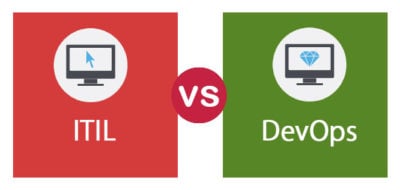In today’s rapidly evolving tech landscape, the integration of ITIL (Information Technology Infrastructure Library) with DevOps practices has emerged as a transformative approach for organizations seeking to enhance service delivery while maintaining agility and efficiency.
Table of Contents
Understanding ITIL and DevOps
What is ITIL?
- Brief overview of ITIL and its traditional benefits in IT service management.
- Key principles: service lifecycle, continual improvement, and alignment with business needs.
Introduction to DevOps
- Definition and core principles of DevOps: collaboration, automation, and rapid delivery.
- Contrasting ITIL’s structured approach with DevOps’ emphasis on agility and integration.
The Evolution: ITIL in a DevOps Environment
Integrating ITIL and DevOps
- Benefits of merging ITIL and DevOps: improved deployment frequency, faster time to market, and enhanced customer satisfaction.
- Overcoming traditional ITIL challenges with DevOps methodologies.
Key Components of ITIL in DevOps
- Service strategy: aligning IT services with business goals through agile planning and continuous feedback.
- Service design: leveraging automation and infrastructure as code (IaC) for scalable and efficient service architectures.
- Service transition: seamless integration of new services with minimal disruption using DevOps pipelines.
Case Studies: Real-World Applications
Example 1: Company A’s Journey
- How Company A integrated ITIL practices with DevOps to streamline incident management and reduce downtime.
- Results: Increased service reliability and faster incident resolution times.
Example 2: Company B’s Success Story
- Implementing ITIL service strategy with DevOps for efficient resource allocation and cost management.
- Achievements: Improved service delivery metrics and enhanced IT-business alignment.
Future Trends and Considerations
The Future of ITIL in DevOps
- Predictions for ITIL’s evolution within DevOps: AI-driven service management, predictive analytics, and enhanced security measures.
- Importance of continuous learning and adaptation in a dynamic IT landscape.
Conclusion
The convergence of ITIL and DevOps represents a pivotal shift in IT service management, offering organizations unprecedented opportunities to innovate, scale, and deliver value at speed. By embracing this integrated approach, businesses can navigate digital transformation with confidence, ensuring resilience and agility in an increasingly competitive market.










Comments on " Innovative ITIL: A DevOps Approach to the ITIL Framework" :